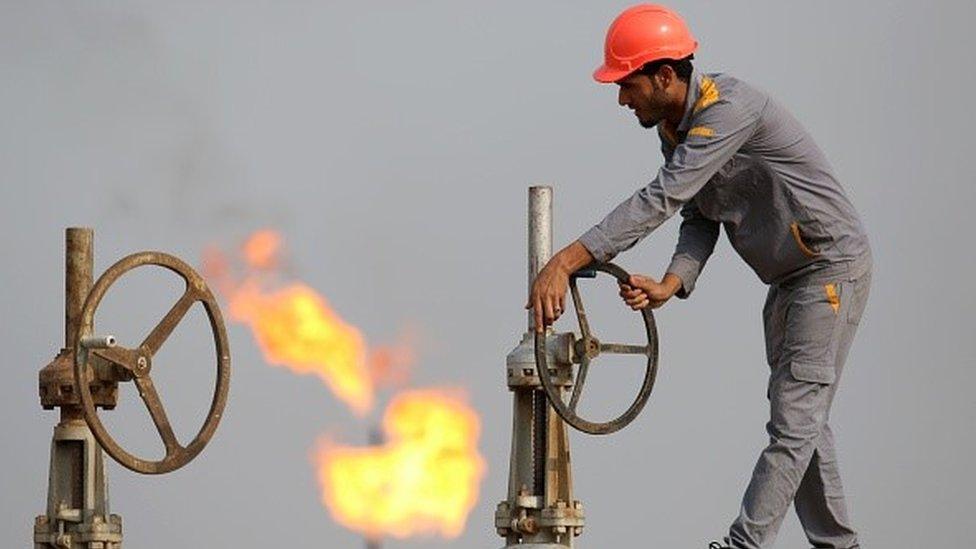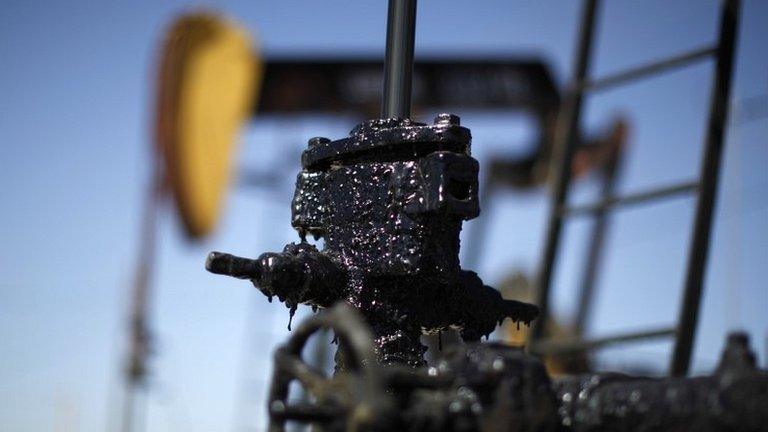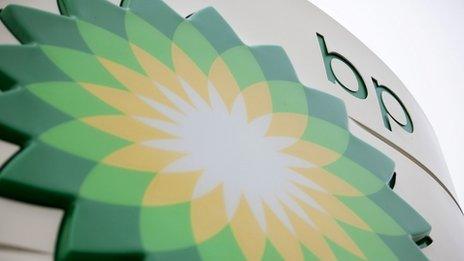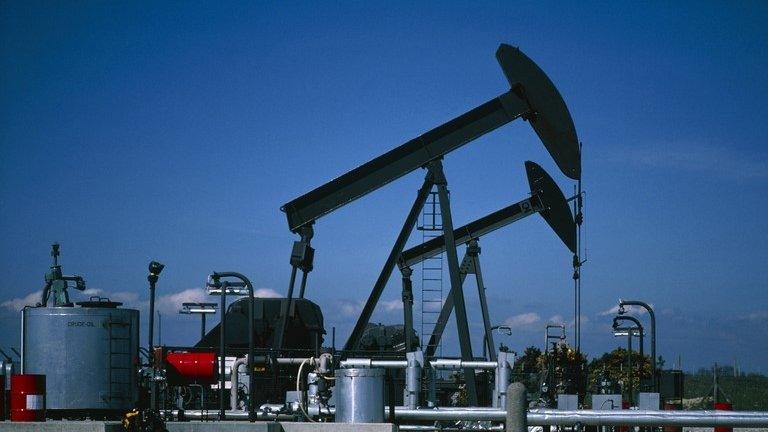Oil price: Brent crude hits 11-year low
- Published

Oil prices have fallen to levels not seen since 2004, surpassing the lows seen during the recession of 2008.
Brent crude sank to $36.05 a barrel - its weakest since July 2004 - before recovering slightly to $36.56.
A global oversupply has dramatically driven down the price of oil, with suppliers failing to reach agreements to address the glut.
Just 18 months ago, in June 2014, the price of oil was traded at $115 per barrel.
The price of US crude was also down on Monday, dropping 40 cents to $34.17 a barrel - the lowest since 2009.
Cheaper fuel
Analysts and oil bosses have said there is little sign that the downward trend will change, with more US and Russian oil reaching the markets.
Iranian oil supply will also resume in 2016, following the lifting of sanctions.
In November, the 12 members of Opec maintained production at 30 million barrels per day, as first agreed in December 2011.
Many consumers have enjoyed the falling price of fuel in the form of lower petrol prices; several UK supermarkets have begun selling petrol at below £1 per litre - which they last did in 2009.
However, oil firms have had profit margins squeezed, forcing them to cut spending in investment and exploration.
Governments of some oil producing countries have also been forced to cut spending as revenue from oil plunges.
The falling price has also led to questions about the merger of energy giants Royal Dutch Shell and BG Group. Earlier this month, David Cumming, head of equities at Standard Life Investments, told the BBC that the deal no longer "makes financial sense" with the oil price at current levels.
- Published7 December 2015

- Published28 November 2014

- Published3 February 2015

- Published13 April 2015

- Published21 January 2015
